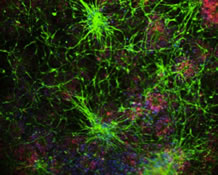Columbia University
Irving Medical Center
Neurological Institute
710 West 168th Street, 3rd floor
(212) 305-1818
About Us
Taub Faculty
Dr. Sher trained in the laboratory of Dr. Daniel E Bauer (Children's Hospital Boston/Dana-Farber Cancer Institute/Harvard Medical School) where he studied gene regulatory mechanisms that act to silence fetal globin expression with the goal to reactive its expression in hemoglobinopathy patients by applying genome editing techniques based on the CRISPR-Cas9 system. Prior, he conducted a post-doctoral fellowship in the laboratory of Dr. Gabriel Corfas at the F.M. Kirby Neurobiology Center of Boston Children’s Hospital. He received his PhD (epigenetic regulation of neural stem cell differentiation and function) in Biomedical Sciences from the University of Groningen (RUG), The Netherlands, where he earned Best Dissertation Award in 2011.
Research Interests:
High-resolution functional genomics of Alzheimer's disease (AD)
Despite ambitious efforts, there is no effective preventive or disease modifying therapy for AD. Accordingly, with an aging global population, there is a pressing need to develop safe and efficient drugs to help combat this devastating disease. Developments in next generation sequencing technologies have enabled identification of AD associated loci/genes by whole-exome sequencing methods and genome-wide association (GWAS) studies. However, the functional validation of these identified loci/genes is still challenging. In order to translate GWAS findings into pharmacotherapy for AD, we need to have a good understanding about the role of GWAS-marked loci/genes in pathophysiology of AD. A major focus of Dr. Sher’s research is to dissect the AD associated genes/variants and related protein complexes to identify the potential interfaces which could serve as possible molecular targets for pharmacotherapy for AD. To achieve these goals, Dr. Sher uses state of art CRISPR-Cas9 based approaches in combination with in-silico analysis and advance molecular biology techniques including next generation sequencing and mass spectrometer (MS). Dr. Sher intends to extend the approach to other neurodegenerative diseases e.g. multiple sclerosis (MS) and Parkinson's disease (PD).
Summer Internships/Research Opportunities
Students interested in exploring the applications of CRISPR Cas9 systems (genome editing) in neurodegenerative diseases, please contact Dr. Falak Sher for the description of available projects.


